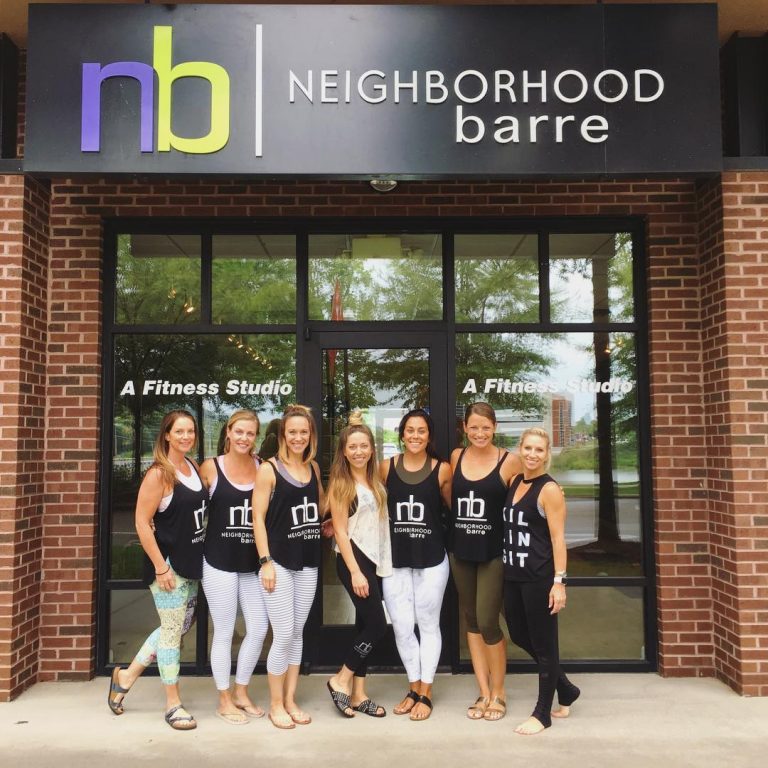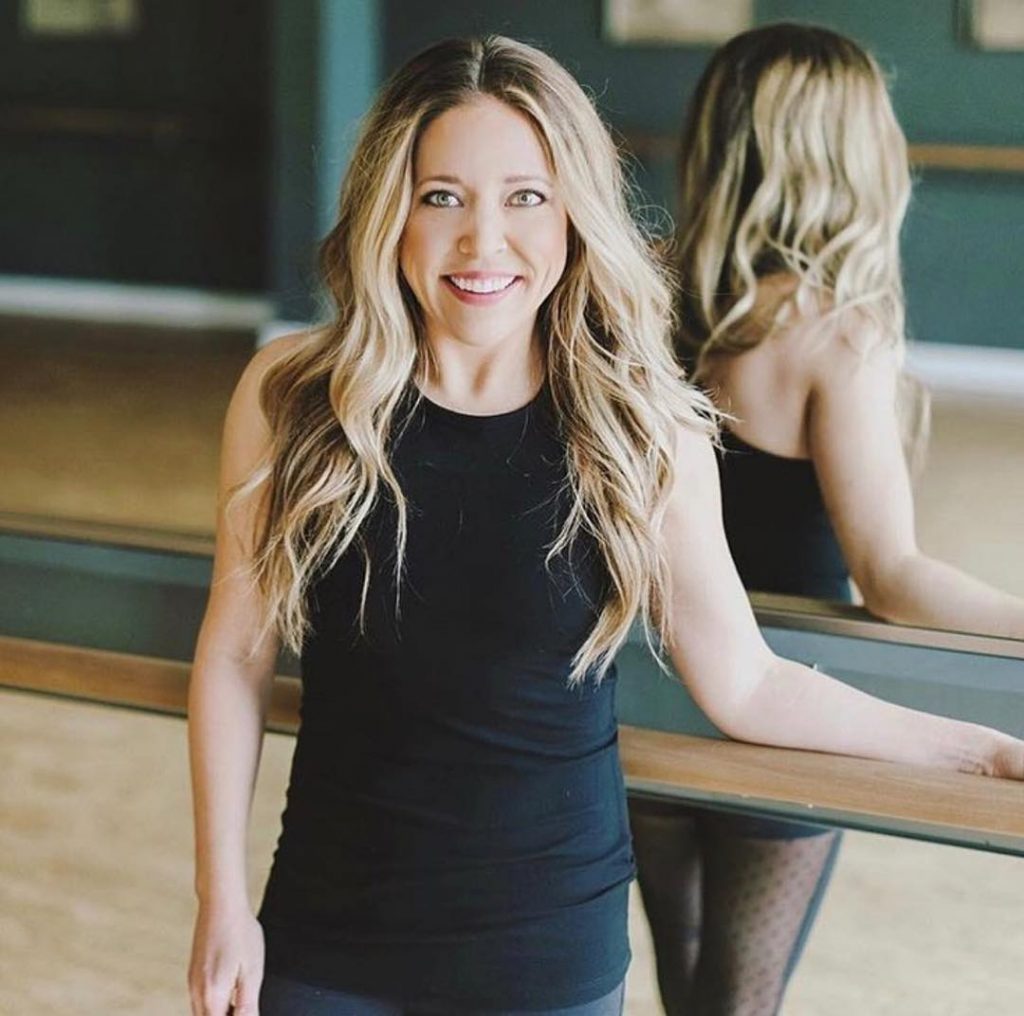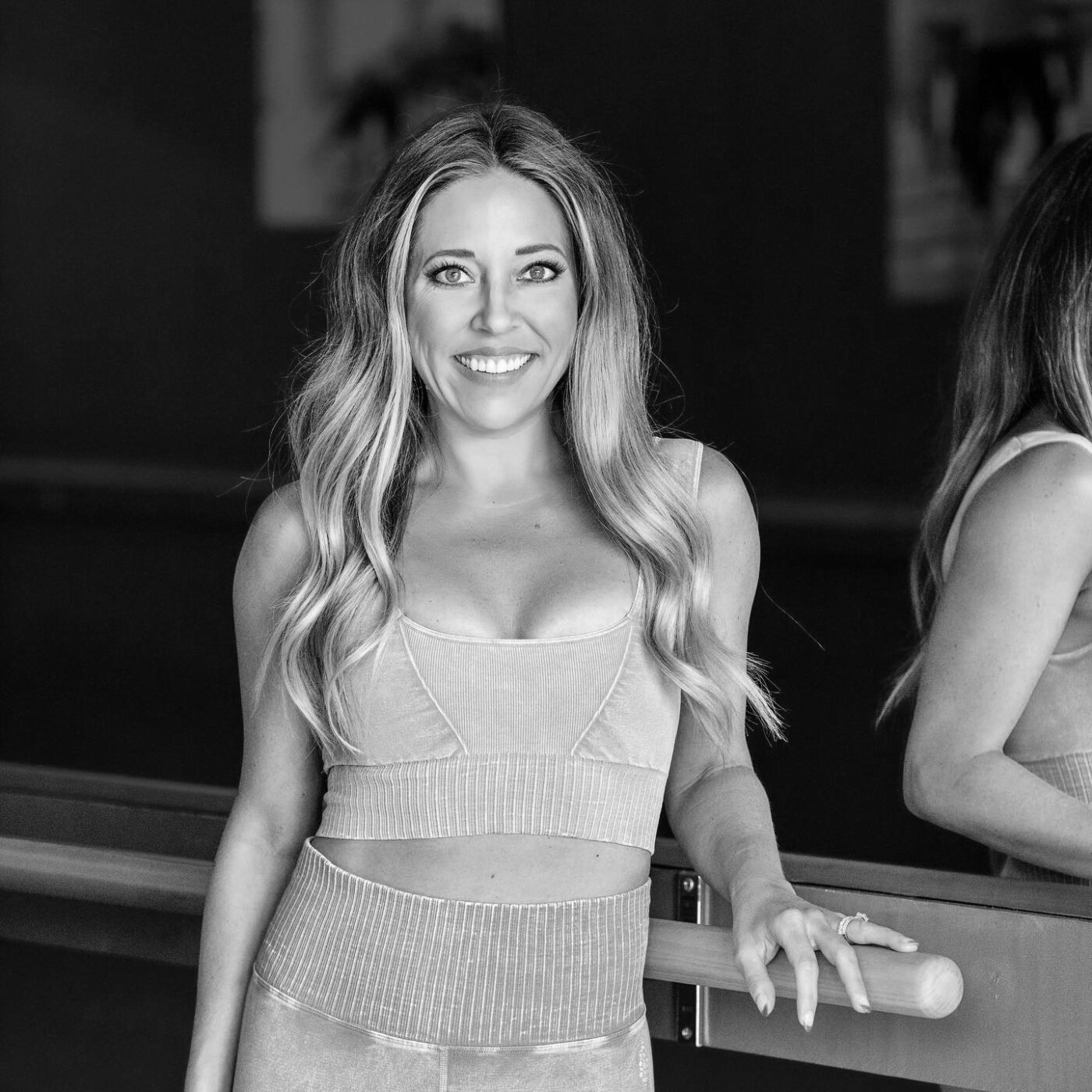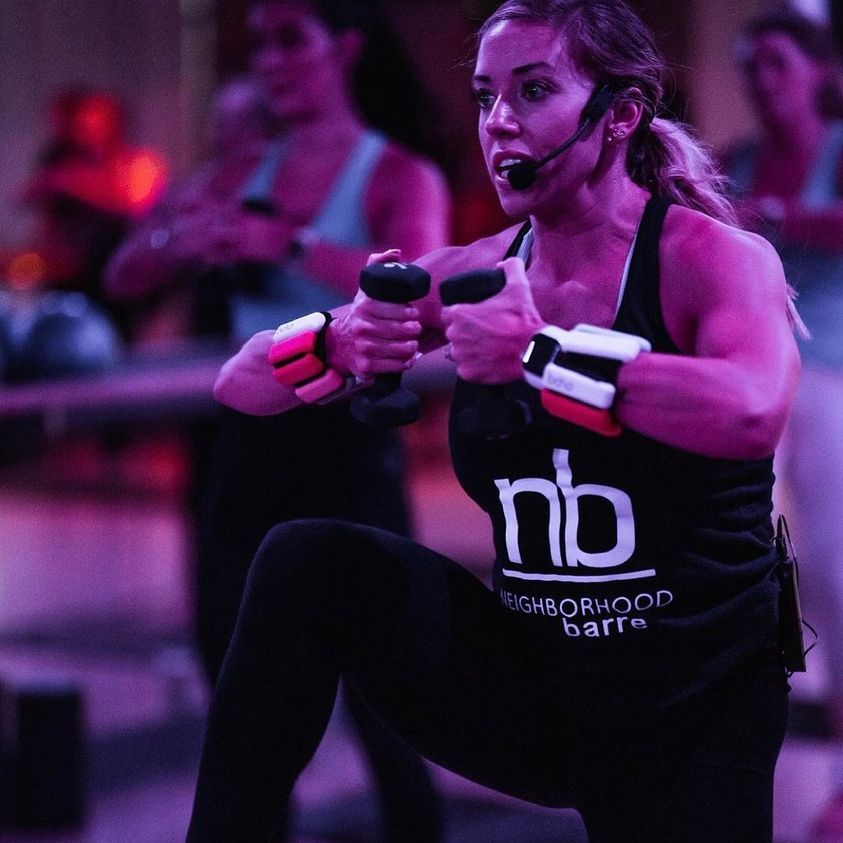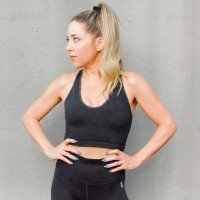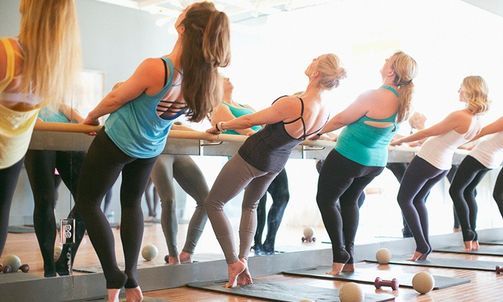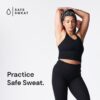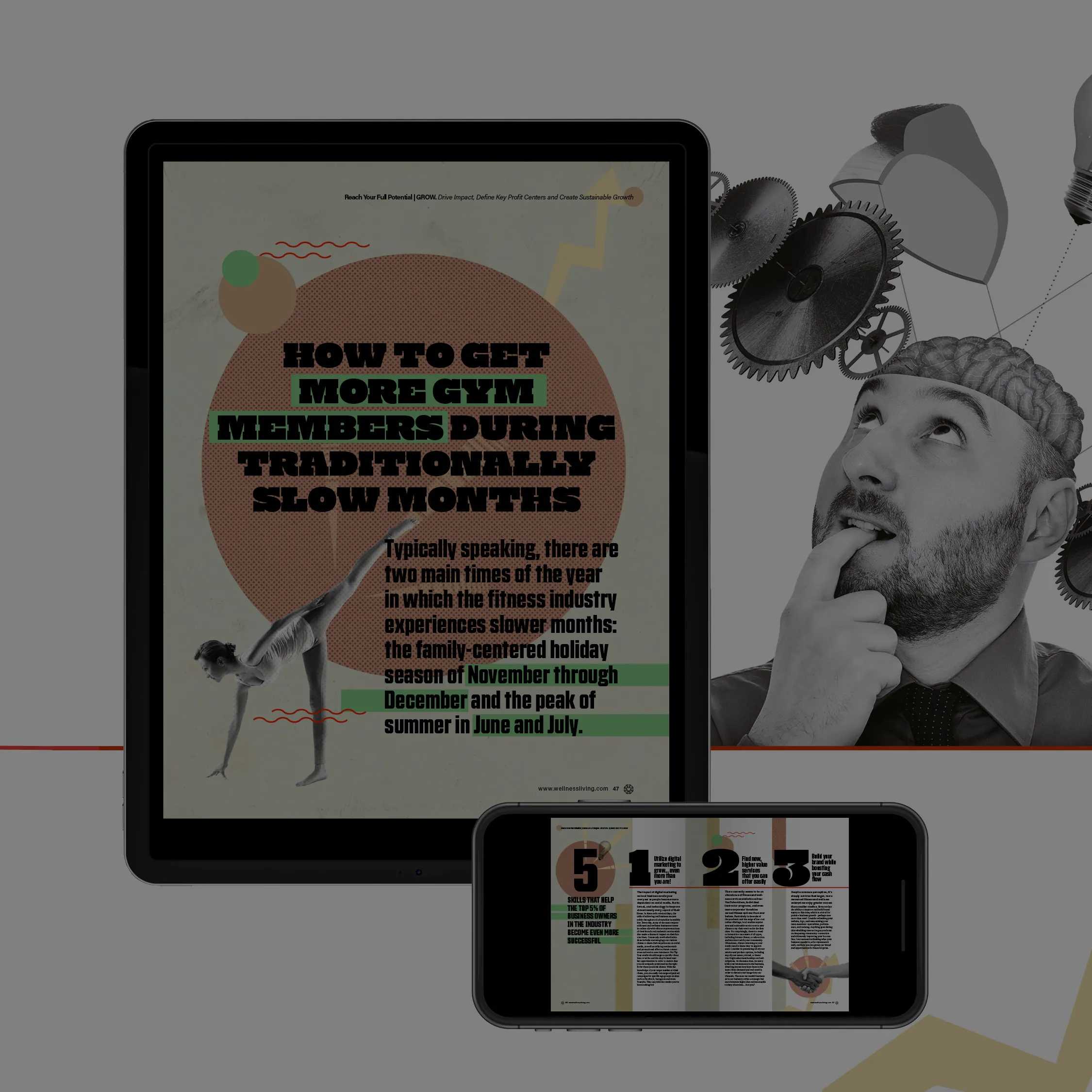Katy Richardson’s good vibes fitness brand Neighborhood Barre is calling clients and franchisees to the barre with doable-for-all classes and a strong corporate vision.
Katy Richardson learned to repel when she was just three years old. It instilled in her not just a love for movement but also, it seems, a penchant for scaling to and leaping from exhilarating heights in business. With her boots-on-the-ground drive and a “howdy, neighbor” attitude, her Neighborhood Barre brand is known as much for fitness results as it is for its relaxed atmosphere.
Katy started cheering in high school and suffered a serious shoulder and neck injury in her junior year in college when she was “dropped out of a basket toss.” After recuperating then reinjuring herself, she dove into the then-novel boutique industry of 2008/9 for some low-impact, non-traditional workout alternatives. Yoga and Pilates eventually led her to barre class, where the energy level and dance conditioning made her feel as if she’d come home.
With a keen understanding that every individual’s fitness journey is personal and may invite vulnerability, Katy developed her own unique twist on the Lotte Berke barre style, sprinkling in her knowledge of yoga alignment, cheer and aerobic training, and class structure for a workout that anyone of every fitness level can enjoy. Today, Neighborhood Barre offers strength and cardio HIIT classes, but their Barre 50 and Barre 30 are the cornerstones of their client experience. Just over a decade since her flagship launch, Katy’s flourishing franchise boasts a still-growing 22 locations in 10 states.
You studied finance and accounting. How did you land on a career in fitness?
I was working as an internal auditor for an international company and traveling a lot. I had been hired at entry level, but a year and a half in, I was doing the job of the principal auditors, and I said to management, ‘If you’re not going to pay me to do the job that I’m doing, I’m going to find something else.’ …I had been certified to teach yoga and I watched what was happening in the boutique fitness industry. People were creating brands and turning them into scalable businesses, which was incredibly intriguing to me. I made a move from Birmingham to Knoxville, TN in August 2011 and I opened the first Neighborhood Barre in October. Everything fell together so quickly and so seamlessly that I didn’t want to fight it or question my instinct.
Why did you decide to expand?
About two years in, more types of fitness studios were opening in Knoxville – cycle studios, Orange Theory – so now I’m not one of two options, I’m one of 10. I’m a very competitive and driven person, and I thought: you can take this opportunity and it’s going to be really stressful and you’re not going to know exactly what you’re doing, or you can keep your one studio and stay out here in this zip code, and you’ll be fine. I made a decision. I negotiated a deal for a “pop up” studio in a shopping centre that was a tenth of the mile from where [my biggest competitor] was opening. I worked around the clock and opened three weeks before they did. It was a catfight for about a year and then everything leveled out… I wish at that time I had more tools for client retention because I had this rush of clients that got on memberships and eventually cycled off… [but that’s] the lifecycle of any small business, so you learn and find tools to help prevent that.
What was your strategy when COVID hit?
The most important thing was maintaining client relationships, so we didn’t go a single day without offering a live service. We already had an on-demand program in place in August 2019, and within a week [of closures] we were doing livestream Zoom classes with two-way communication. Within two weeks, I had a co-op initiative among the franchise to offer 48 virtual classes a week to our clients, but each individual studio was only servicing three to five… Clients were scared and they didn’t feel safe leaving their homes, but there was also a group of people looking for a safe, controlled, socially distanced environment, which is what we were providing. When your influx of new clients is lower, you have to be really tight on your conversions, so we monitored conversion rates and tried to make sure that people knew that our doors were open.
What were the results?
We got great feedback across the board… Our goal going into 2021 was to increase corporate revenue by 30% with the majority of that coming from royalty revenue, which means increasing individual studio revenue. We increased corporate revenue 36.5% with a 28% increase in individual studio revenue. So, what we did worked. We refined it, and we’re doing that again in 2022. In February, we were 25% up on 2021 as far as individual studio revenue, so I believe we’ll exceed that 30% goal… We [want our franchisees to] feel they’re treated like clients, providing them good customer service and support, and they in turn do that for their in-studio clients. We try to keep that culture going throughout the franchise and lead by example.
How do you support your franchisees?
Everybody needs different things at different times, so we have monthly business coaching intensives that franchisees can opt into, then it’s uploaded on our company intranet and can be prescribed as a remedy to a future problem. We pour resources into the studios, giving them toolkits to generate leads and convert those leads, and marketing initiatives throughout the year that not only generate new classes but also support current clients. You need to roll out the red carpet for your current clients or they eventually filter out and go do something else where they feel important and seen… We take feedback, monitor key performance indicators on a high-level weekly, and create scorecards for our franchisees every month.
Who makes a great franchisee for you?
Neighborhood Barre is an owner/operator model… If you look deep into the boutique fitness basin (now vs. where it was 10 or 15 years ago), there’s a lot more competition, so you have to run it lean and mean. [For some it’s a] passion project, but I would say at least half of our franchisees rely on the income they make out of their business. When I started, I didn’t have a backup plan; I didn’t give myself the option to fail. I had to turn a studio into a profitable business to support myself, so we teach other people how to do that too. Your franchisees are the roots to your tree, which is your brand. If you don’t have strong roots, it’s just not sustainable.

